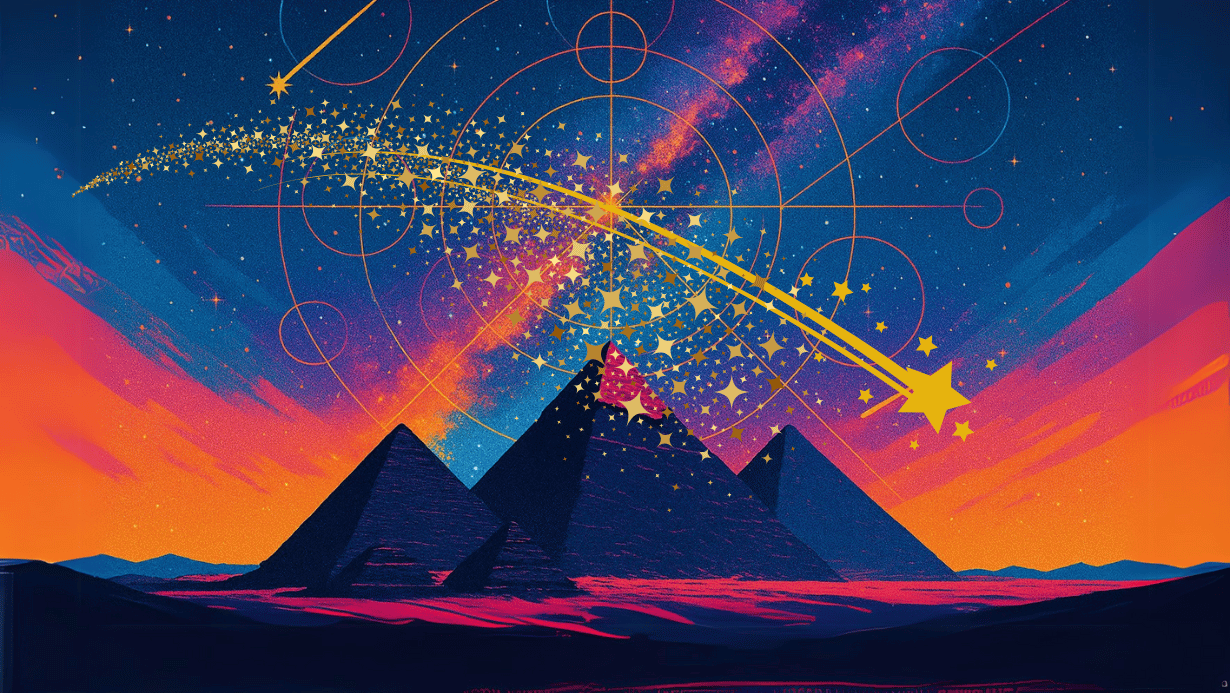What Is Astrology, Really? (And Why It’s Not As Woo As You Think)
How astrology works (and why it’s not just superstition). A straight-talking guide for the curious mind.
When most people hear the word "astrology”, their minds go straight to horoscopes in the back of a magazine, vague predictions about tall dark strangers, or Instagram memes about which zodiac signs are most likely to ghost you.
If you’re even slightly science-minded, it's tempting to file the whole thing under "silly but harmless”.
But here's the thing: astrology isn’t a belief system. It’s a language.
It's a way of mapping the rhythms of life, not with superstition, but with thousands of years of careful observation.
You don't have to "believe" in astrology any more than you have to believe in gravity.
The question isn’t if the cosmos influences life on Earth - the question is how much, and whether we’re willing to notice.
Where It All Began
Long before telescopes, smartphones, or even written history, humans looked up at the sky and noticed patterns. The rising of certain stars predicted the flooding of rivers. The return of particular constellations heralded seasons of planting, hunting, migrating, or resting.
The sky wasn’t decoration - it was survival.
It was the first clock, the first calendar, the first compass.
Over time, a deeper noticing emerged:
When Mars burned brightly, wars tended to break out.
When Venus rose high, marriages and alliances flourished.
The movements above weren’t causing events - they seemed to mirror them.
This noticing became a system. And that system - refined over thousands of years - became astrology.
Is Astrology Scientific?
Depends who you ask.
Modern science is built on explaining why things happen - cause and effect. Astrology, on the other hand, is built on noticing that things happen together - correlation, not causation.
For example: We know the Moon pulls the tides. That's a gravitational fact. But we also know that hospital births, ER visits, and emotional flare-ups spike during the full moon. Is it irrational to think celestial forces could affect human bodies, moods, and patterns? Or is it simply incomplete science - a frontier we haven’t fully mapped yet?
Astrology isn’t here to replace science. It’s here to remind us that life might be more interconnected - more resonant - than our current models allow.
The Sky as a Mirror (Not a Puppet Master)
Let’s clear up another big misunderstanding:
Astrology doesn’t say that planets control you.
You are not a puppet on cosmic strings.
Instead, astrology suggests that life moves in patterns - tides, cycles, rhythms - and the movements of the sky reflect those tides back to us.
It’s like a cosmic weather forecast. When the meteorologist says a storm is coming, you don’t assume they caused the rain. You just grab an umbrella.
Astrology simply offers a way to see the energetic "weather" we're moving through - so we can choose how to meet it, rather than being knocked around by it.
Why Astrology Hasn’t Gone Away
If astrology were nonsense, it would have disappeared like so many other ancient ideas. Instead, it has quietly threaded itself through every major civilization - Babylonian, Egyptian, Greek, Roman, Islamic, Medieval, Renaissance - right up to now.
Even modern psychology owes it a debt: Carl Jung (the father of analytical psychology) openly used astrology to better understand archetypes and human behavior.
Maybe astrology has endured because it taps into something we all instinctively know:
That life is not random. That patterns repeat. That we are part of something much bigger, much older, and much more intricate than we usually let ourselves believe.
What Comes Next
This is the beginning of a new series I’m calling The Cosmic Code - a deep dive into the real origins of astrology and how it actually works.
It’s not about convincing you to believe anything. It’s about opening a door - one that leads into a deeper, older understanding of the world we live in.
We’ll explore where astrology came from, why it has been trusted across civilizations, and how, in an age obsessed with facts and data, it might just hold the ancient wisdom we've been missing.
Next up: How ancient humans first mapped the sky - and why their wisdom might be more relevant today than ever before.













